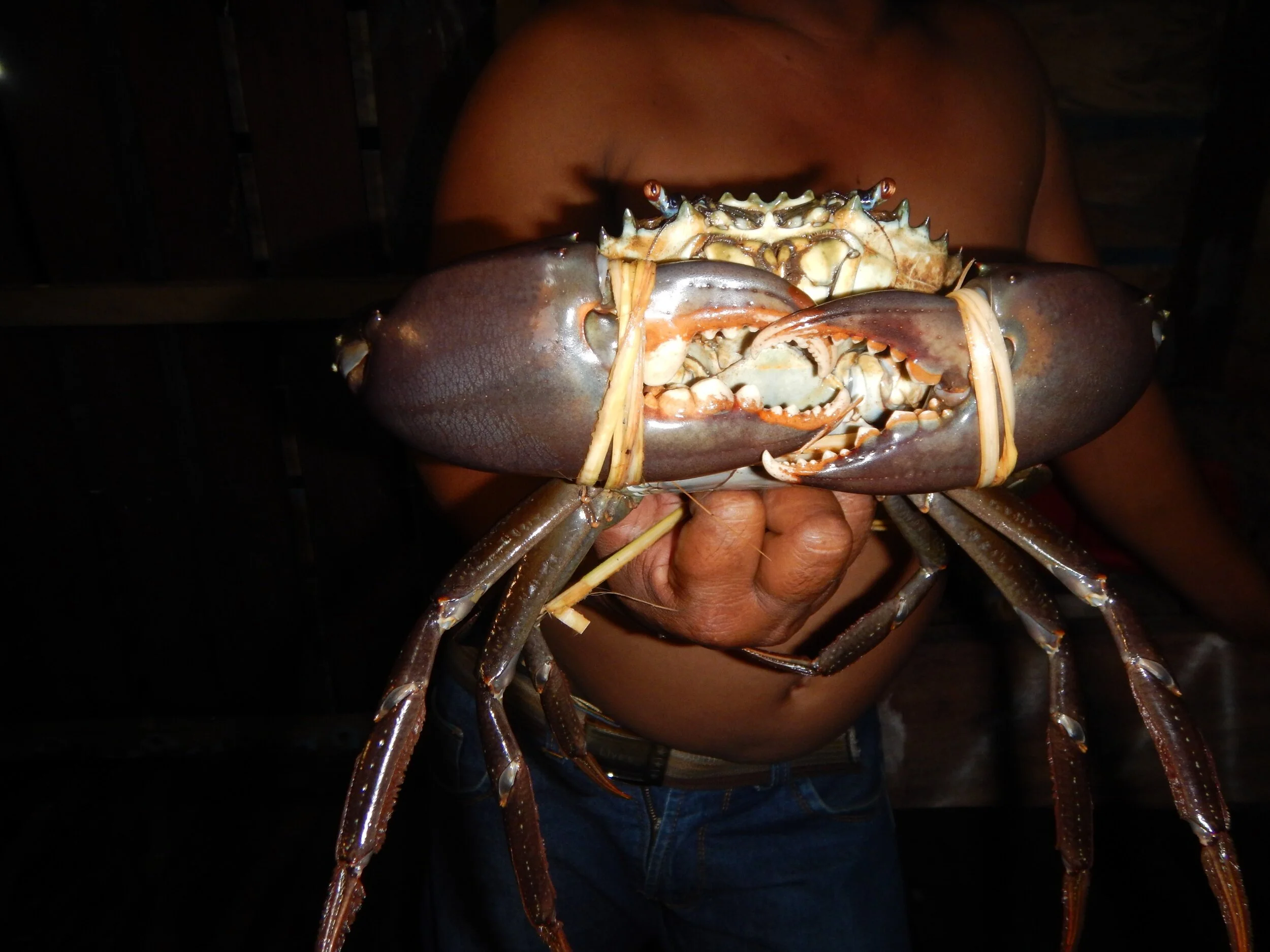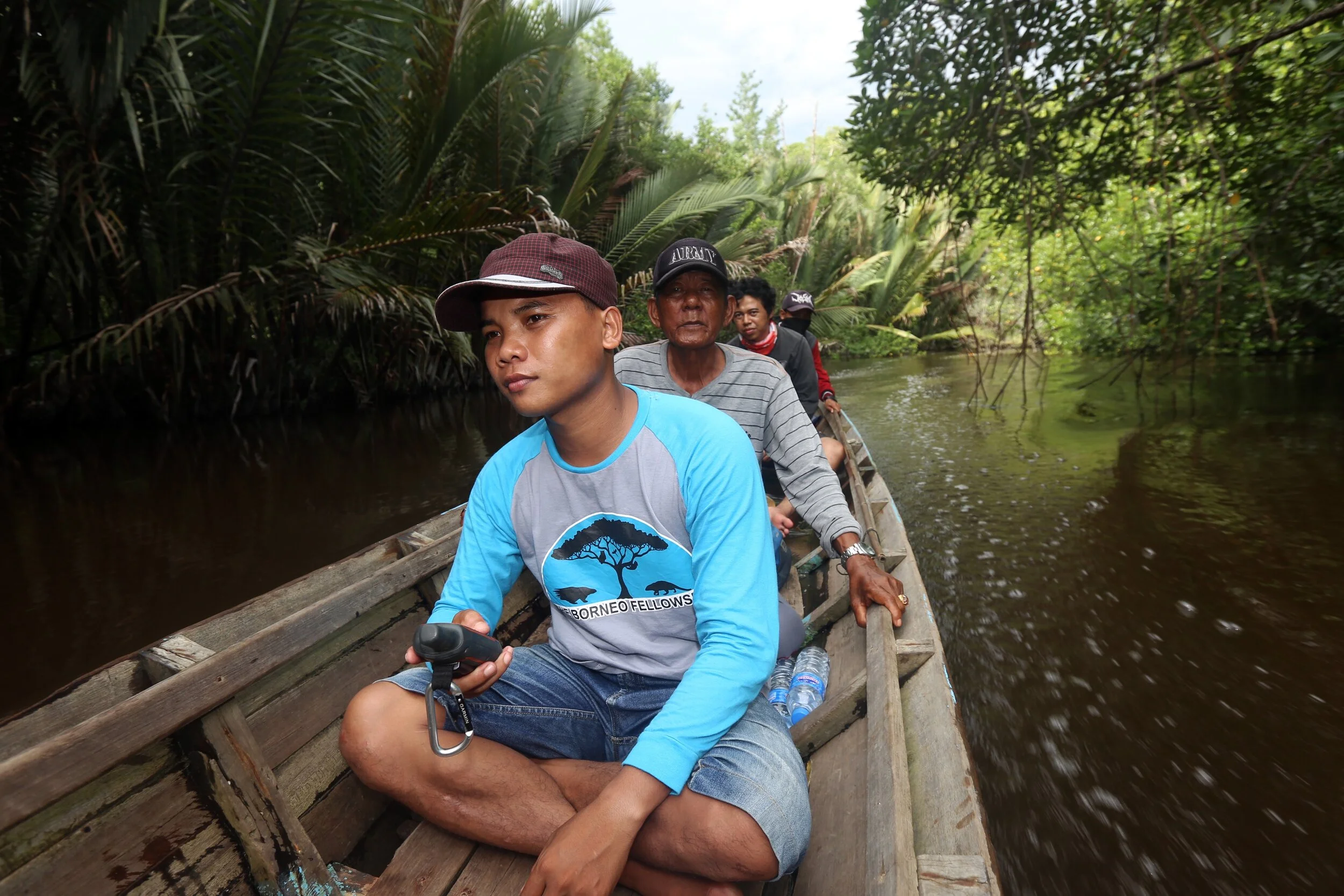Our Conservation Cooperative model that was developed a few years ago is experiencing exponential popularity among many villages in West Kalimantan, Borneo. We are excited to be adding many new partners to our conservation programing.
Read MoreCollecting data through interviewing local experts living alongside wildlife allows us to gain a better understanding of the wildlife we help conserve. We call this method Pooling Local Export Opinions and we compared it to our more traditional methods of studying wildlife. See how they compare in this blog!
Read MoreJust as the year 2021 got started, the 6th temporary fishing reserve - impacting six villages located within Kubu Raya, came to a close. These fishing closures are important to the communities we partner with by providing them with more economic resilience and food security.
Read MoreBuilding trust and showing up are what truly matters to make an impact in conservation. In this blog, our Executive Director discusses lessons learned through Planet Indonesia and advice about increasing conservation impact around the globe.
Read MoreThis past year has been extraordinarily challenging for our global community. However, despite the overwhelming challenges, we are excited to report many incredible highlights over the past year that you enabled us to do with your donations.
Read MoreThis year, we celebrated our six year anniversary of conserving at-risk ecosystems through our village-led partnerships. This was an incredible milestone for our work and our staff who are dedicated to addressing some of the world's greatest challenges.
Read MoreThrough Conditional Cash Transfers, we continue to adapt to the needs of our communities even during a global pandemic. Our demonstration to a needs-based approach is what makes our innovation programs so impactful.
Read MoreThis crisis has highlighted failures in our field as well as new opportunities to deliver impactful solutions to repair systemic unsustainable relationships between society and nature. Here are some of our solutions to build a resilient future.
Read MoreStrengthening organizational systems and team building to better facilitate positive impacts of social change.
Read MoreAnnouncing our newest project site that will increase our conservation impact to cover 710,000 hectares of conserved natural habitat.
Read MoreA new up-and-coming framework has been identified as a solution to tackle climate change, biodiversity loss and reduce rural socio-economic hardships.
Read MoreBefore we pull up our sleeves for the new decade, we’re taking the time to reflect on what progress 2019 is bringing.
Read MoreLast week our temporary closure systems opened! Join our crab fishers on the rivers to see how we fish and what we get up to on opening week. Listen to their testimonials.
Read MoreEverything you need to know about our community development approach to environmental conservation is in our Gunung Nuit Report, but for organisations wanting to implement or learn from our model for practical purposes we welcome them to engage in knowledge exchanges. Most recently we welcomed Forkani (assisted by Blue Ventures) to learn from our models in our coastal village partners of Sungai Nibung, and Mengkalang Jambu. We shared with them all the ingredients that make our model work and they got to speak to community stakeholders at every level to get multiple perspectives. We were just passing on the good grace offered to us by other organisation partners like Blue Ventures who helped us a lot last year. Read this blogpost to learn what's involved and how everyone benefits.
Read MoreOur agriculture program has bee-n with us from the bee-ginning but last year we developed it further. Now villagers can benefit from a sustainable agriculture course consisting of four levels to ensure villagers can smoothly transition and most importantly gain the expertise to maintain their sustainable agriculture systems. Read more to reveal an exciting new update, we’ve hidden some clues in this description - see if you can guess what it’s about.
Read MoreIf we want any hope for the future, gender equality must be achieved. In this blogpost we go through the reasons why and how we empower women and girls so that they have the freedom to pursue the life they want. Our Health and Literacy Coordinators, as pictured in this title photo, give their first hand experience in dealing with gender equality issues in rural communities and what motivates them to continue the fight.
Read MoreRecently we took a field trip to Seruat dua accompanying Blue Communities PhD candidate Ana from the UK who is studying the impact of our Population Health Environment (PHE) integrated approach. In this blogpost we explain the philosophies and methodology behind our health services in rural communities that have limited access to health care. Read more to understand how we support communities in achieving the human right to health.
Read MoreTo assess whether we were preventing biodiversity loss was proving to be an immense challenge because most of the currently existing methods of surveying population densities was extremely inefficient. We’ll be implementing the PLEO method this year to combat the problems we face with transect surveys. Read this blogpost to get the full lowdown on the why and how.
Read MoreEvery year, our achievements get larger and our aims get more ambitious. This year, one of our resolutions was to try and engage our international support base more with the grassroots work we do. We want to take you on the journey and show you what happens on the ground. Take a look at this blog post to see what some of the biggest adventures we’ll be undertaking so we can track our progress together.
Read More2018 was a massive year for us. You might remember some of the big exciting moments like when Adam won his Future for Nature award or when our Helmeted Hornbill chick finally fledged but underlying all that is a lot of consistent hard work that also manifest more quiet and ongoing (but equally important) achievements. Take a peep at this blogpost to see the milestones we climbed up to in 2018 before we fly off to even higher heights in 2019.
Read More




















